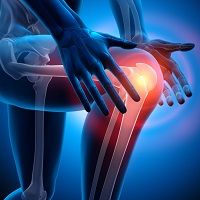Osteoarthritis Guidelines Highlight Scientific Progress, Lack of Options
New 2020 osteoarthritis guidelines, developed by the American College of Rheumatology and the Arthritis Foundation, were previewed during ACR 2019.

A welcome sign of relief for many patients and clinicians alike, the American College of Rheumatology are offering a preview of the 2020 guidelines for the treatment of osteoarthritis.
Although draft guidelines are still undergoing peer-review and not expected to be released until 2020, the American College of Rheumatology and the Arthritis Foundation highlighted various changes during the 2019 American College of Rheumatology annual meeting in Atlanta, GA.
With the most recent osteoarthritis guidelines published in 2012, the draft updated guidelines incorporate information from scientific studies conducted since that time and reflect additional options available to manage patients. Additionally, through collaboration with the Arthritis Foundation the updates guidelines are also shaped with the input of patient perspective.
“The new guideline emphasizes a comprehensive approach to the management of osteoarthritis rather than a stepwise algorithm,” said Sharon Kolasinski, MD, lead author for the guideline update and a practicing rheumatologist with Penn Medicine.
While some recommendations, like exercise as an important intervention, may remain from the 2012 guidelines, the updated guidelines previewed at ACR 2019 featured nearly a dozen changes or new additions.
“The clinician and the patient are invited to choose from a varied list of interventions (educational, behavioral, psychosocial, mind-body, physical and pharmacological approaches) that might be used and reused over time to address the pain and functional compromise caused by osteoarthritis,” Kolasinksi said.
One of the major changes in the new guidelines is a new strong recommendation against using hyaluronic acid injection in patients with hip osteoarthritis. Kolasinski pointed out previous guidelines had no recommendations regarding hyaluronic aside injections in the hip.
Additional changes include strong recommendations replacing previously conditional recommendations for self-efficacy/self-management programs, use of tai chi for knee and hip osteoarthritis, topical NSAIDs for knee and hand osteoarthritis, oral NSAIDs, and intra-articular steroids for knee and hip osteoarthritis. Other changes included a conditional recommendation for using topical capsaicin in patients with knee osteoarthritis, a conditional recommendation against using manual therapy with exercise for knee and hip osteoarthritis, a strong recommendation against transcutaneous electric nerve stimulation for knee and hip OA, and a strong recommendation against using glucosamine, and for using chondroitin, in patients with knee and hip osteoarthritis.
New changes incorporated into the 2020 guidelines include a recommendation for balance exercises for knee and hip osteoarthritis and duloxetine for knee osteoarthritis, conditional recommendations for using yoga, cognitive behavioral therapy, radiofrequency ablation and kinesiotaping for first carpometacarpal and knee osteoarthritis, and recommendation against using intra-articular hyaluronic acid injections in first carpometacarpal and knee osteoarthritis.
Recommendations also cautioned against the use of bisphosphonates, hydroxychloroquine, methotrexate, PRP injections, stem cell injections, TNF inhibitors, and interleukin-1 receptor antagonists. In a release from the ACR, the guideline team cites several agents being tested and failing to show adequate benefit to justify their use. Additionally, the release noted the updated guidelines will also contain a broad suggested research agenda to address the limited options for management of osteoarthritis.